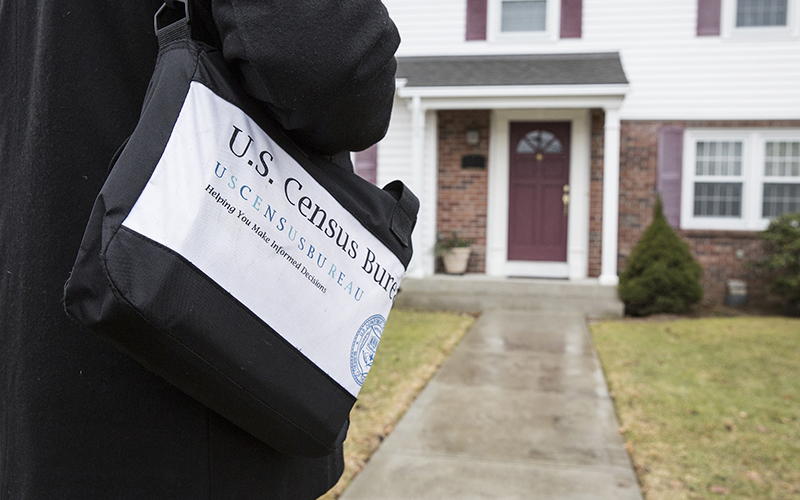
The Census Bureau began testing last year in select cities in preparation for the 2020 Census, even as courts continue to debate whether people can be asked their citizenship status on the census form. The Supreme Court is now set to hear the case in April. (Photo courtesy U.S. Census Bureau)
WASHINGTON – The Supreme Court agreed Friday to fast-track a case challenging whether the Census Bureau can ask people their citizenship status, a move that advocates and local government officials fear will suppress immigrant participation.
The Justice Department in 2017 had asked for the change that it said will provide important data that will help the department enforce the Voting Rights Act. But critics charge the question was “designed to scare” immigrants and called it another instance of the Trump administration instilling fear with its anti-immigrant rhetoric.
“We live in a time where there is historic fear in communities of color … because of this administration’s rhetoric,” said Beth Lynk, director of the Census Counts campaign for the Leadership Conference on Human and Civil Rights.
Lynk said the citizenship question is politically motivated and would cause “real fear in communities.”
But Ira Mehlman of the Federation for American Immigration Reform says it’s “perfectly constitutional” to ask people their citizenship, along with all the other information the census collects anonymously.
“There is no logical reason why we shouldn’t be asking this question,” said Mehlman, who scoffed at the notion that people would be afraid to fill out the form in a time when immigrant protesters often wear shirts proclaiming they are “undocumented and unafraid.”
The court’s order Friday recognizes the fact that the Census Bureau is operating under a time constraint: Forms need to be finalized soon so they can be printed in time for next spring’s decennial census. The justices took the case directly from a U.S. District Court in New York, skipping the normal circuit court appeal first, and scheduled arguments in the case for April.
The decennial census is mandated in the Constitution, and the population numbers it produces are used to determine how many member of Congress each state gets and, within states, how congressional and legislative districts are drawn.
In addition to political representation, there is money riding on the results. The census count is used to allocate federal aid dollars to state and local governments.
That has led many local officials to fear an undercount, which would hit their jurisdictions in the budget and the ballot box. Anything that puts the results at risk, like a citizenship question, is what Mesa Mayor John Giles called “just stupid” during a forum in Washington last month.
“It’s going to have a chilling effect,” he said then. “It’s going to result in people being intimidated by the census.”
Those concerns were acknowledged by Commerce Secretary Wilbur Ross last year when he agreed to the Justice Department’s request for the citizenship question, which has not been asked for decades.
“The need for accurate citizenship data, and the limited burden that the reinstatement of the citizenship question would impose, outweigh fears about a potentially lower response rate,” Ross wrote in a memo announcing the decision.
The announcement swiftly drew several legal challenges.
U.S. District Judge Jesse Furman ruled in one of those challenges last month that Ross “alternately ignored, cherry-picked, or badly misconstrued the evidence in the record before him.” Siding with the state of New York against the Census, Furman also said Ross “failed to justify significant departures from past policies and practices – a veritable smorgasbord of classic, clear-cut” violations of administrative procedure.
Furman’s ruling is the one the high court agreed to consider.
Mehlman, noting that the census is anonymous, said the citizenship question will merely help the government “get a grasp” of the number of illegal immigrants in the country.
“There is no evidence to suggest they won’t answer an anonymous question,” he said.
But Lynk called Furman’s ruling a “well-reasoned, fact-bound opinion” that should stand. She said the question should never have been raised in the first place.
“The census should not be a political issue,” she said.